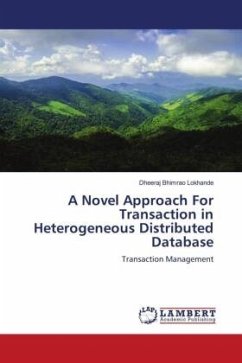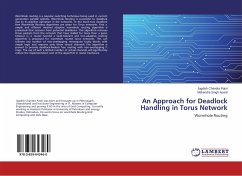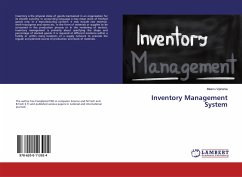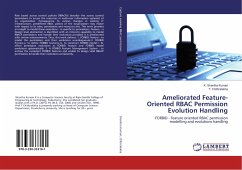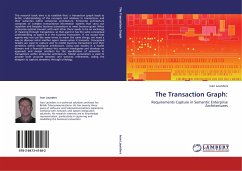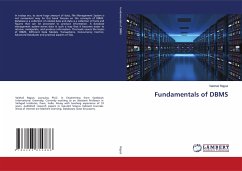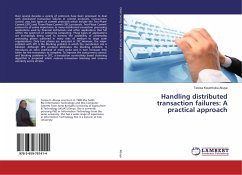
Handling distributed transaction failures: A practical approach
Versandkostenfrei!
Versandfertig in 6-10 Tagen
36,99 €
inkl. MwSt.

PAYBACK Punkte
18 °P sammeln!
Over several decades a variety of protocols have been proposed to deal with distributed transaction failures in commit protocols. Concurrency control uses two types of commit protocols which include the Two-Phase Commit (2PC) and Three-Phase Commit (3PC) protocols. Two-Phase Commit protocol is of prime importance to many distributed transaction processing applications used by financial institutions and other applications that fall within the spectrum of enterprise computing. These types of applications are increasingly being used to harness the availability of commodity processing power scatte...
Over several decades a variety of protocols have been proposed to deal with distributed transaction failures in commit protocols. Concurrency control uses two types of commit protocols which include the Two-Phase Commit (2PC) and Three-Phase Commit (3PC) protocols. Two-Phase Commit protocol is of prime importance to many distributed transaction processing applications used by financial institutions and other applications that fall within the spectrum of enterprise computing. These types of applications are increasingly being used to harness the availability of commodity processing power scattered in many sites of medium to large scale organizations. Only two phases are executed in 2PC.However, the major problem with 2PC is the blocking problem in which the coordinator site is blocked. Although 3PC protocol eliminates the blocking problem, it introduces an extra overhead of more cycles and in turn increases time taken for the transaction to complete. To improve the concurrency control and blocking problems in 2PC, a transaction connectivity based clustering algorithm is proposed which reduces transaction blocking and ensures atomicity across all sites.



